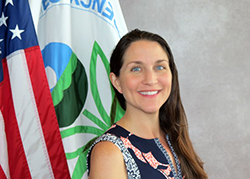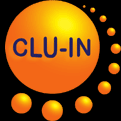Most Common Game Animals in the U.S and Information on Intakes, Habitation, Hunt Frequency, and Human Consumption
Sponsored by: U.S. EPA Office of Superfund Remediation and Technology Innovation
This webinar describes the process and results from a research project, completed through an internship with the US EPA, concerning an issues that arises when assessing risks from contamination at Superfund sites. This research project analyzed what are the most common game animals for hunting and fishing in the US, and their respective intakes (fodder or prey, water ingestion, and soil ingestion) and information on human ingestion rates by persons hunting or fishing. A summary of this effort along with the resulting paper will be highlighted in this webinar.
Accessibility, Recording, and Content Disclaimer
Rehabilitation Act Notice for Reasonable Accommodation
It is EPA's policy to make reasonable accommodation to persons with disabilities wishing to participate in the agency's programs and activities, pursuant to the Rehabilitation Act of 1973, 29 U.S.C. 791. Any request for accommodation should be made to at or , preferably one week or more in advance of the webinar, so that EPA will have sufficient time to process the request. EPA would welcome specific recommendations from requestors specifying the nature or type of accommodation needed. Please note that CLU-IN provides both alternate phone call-in options and closed captioning for all webinars, and requests for these specific accommodations are not necessary.
Webinar Recording
By participating in this CLU-IN webinar, you automatically agree to authorize recording of audio and visual content presented during this live event and consent to subsequent use of this recording in the public domain by the U.S. Environmental Protection Agency. This recording may include questions, comments and poll responses provided by you during the live event in addition to your name, voice, image or likeness. This recording will be made available after the conclusion of the live event as part of the CLU-IN webinar archives, and will remain available indefinitely. If you do not wish to consent to the recording, please do not join the live event, and contact Jean Balent at 202-566-0832 or balent.jean@epa.gov to discuss your concerns.
Content Disclaimer
This webinar is intended solely to provide information to the public. The views and opinions expressed as part of this webinar do not necessarily state or reflect those of the U.S. Environmental Protection Agency. It is not intended, nor can it be relied upon, to create any rights enforceable by any party in litigation with the United States, or to endorse the use of products or services provided by specific vendors. With respect to this webinar, neither the United States Government nor any of their employees, makes any warranty, express or implied, including the warranties of merchantability and fitness for a particular purpose, or assumes any legal liability or responsibility for the accuracy, completeness, or usefulness of any information, apparatus, product, or process disclosed, or represents that its use would not infringe privately owned rights.
Presenters:
 Stuart Walker, U.S. EPA Office of Superfund Remediation and Technology Innovation (walker.stuart@epa.gov)
Stuart Walker, U.S. EPA Office of Superfund Remediation and Technology Innovation (walker.stuart@epa.gov)
Stuart Walker has been employed by U.S. EPA in Washington, DC since 1990 in either the Superfund program (the Office of Superfund Remediation and Technology Innovation) or the Office of Radiation and Indoor Air working on issues regarding the cleanup of contaminated sites. His primary area of responsibility includes serving as the Superfund program's national lead on issues regarding radioactively contaminated CERCLA sites. In this role, Stuart develops national policy for risk assessment including models, community involvement, compliance with Applicable or Relevant and Appropriate requirements (ARARs), establishing cleanup levels and management of radioactive contamination at CERCLA sites.
Maia Sowers, U.S. EPA Intern
Maia Sowers is a Junior at UNC Asheville majoring in Environmental Management and Policy with a minor in Economics. She has previous experience working for her school's Student Environmental Center and a non-profit with volunteer experience for U.S Fish and Wildlife. Her goal is to work for the EPA and she is passionate about making the world a cleaner place. Maia is very excited to have been a part of this beneficial project for the EPA as an Intern.
Moderator:
 Jean Balent, U.S. EPA Technology Innovation and Field Services Division (balent.jean@epa.gov or 202-566-0832)
Jean Balent, U.S. EPA Technology Innovation and Field Services Division (balent.jean@epa.gov or 202-566-0832)
Ms Balent is on the staff of the EPA's Technology Innovation and Field Services Division where she has worked to collect and disseminate hazardous waste remediation and characterization information since 2003. Ms Balent manages the Clean Up Information Network website and actively supports online communication and collaboration resources available to EPA. She formerly worked with the US Army Corps of Engineers Environmental Engineering Division in the Buffalo District. Ms Balent was also a member of the SUNY-Buffalo Groundwater Research Group where she constructed and tested large scale models of groundwater flow. Ms Balent has also conducted research relating to the Great Lakes, environmental remediation, and brownfields re-development. She holds a Bachelor's degree in environmental engineering from SUNY-Buffalo and a Master's degree in Information Technology from AIU.
Webinar Slides and References:
Webinar Slides and References:
-
 Slide Presentation for Stuart Walker, U.S. EPA Office of Superfund Remediation and Technology Innovation (2.27MB/PDF)
Slide Presentation for Stuart Walker, U.S. EPA Office of Superfund Remediation and Technology Innovation (2.27MB/PDF)
-
 Slide Presentation for Maia Sowers, U.S. EPA Intern (3.25MB/PDF)
Slide Presentation for Maia Sowers, U.S. EPA Intern (3.25MB/PDF)
Additional Resources:
Thank you for participating in our webinar. We would like to receive any feedback you might have that would make this service more valuable.
Help & FAQs
Adobe Connect Resources
This seminar will be delivered through Adobe® Connect™ with streaming audio delivered through your computer speakers or headphones. We strongly encourage you to test your computer or mobile app prior to attending this seminar using the links below. Technical support on the day of the seminar will be very limited and subject to significant delays.
- Adobe® Connect™ Meeting Connection Diagnostic & Troubleshooting Tips
- Adobe® Connect™ Mobile Apps
- Adobe® Connect™ Visual Quick Start Guide (754KB/2pp/PDF)
Rehabilitation Act Notice for Reasonable Accommodation
It is EPA's policy to make reasonable accommodation to persons with disabilities wishing to participate in the agency's programs and activities, pursuant to the Rehabilitation Act of 1973, 29 U.S.C. 791. Any request for accommodation should be made to at or , preferably one week or more in advance of the seminar, so that EPA will have sufficient time to process the request. EPA would welcome specific recommendations from requestors specifying the nature or type of accommodation needed, such as closed captioning.
with any additional questions
If you have a suggested topic or idea for a future CLU-IN internet seminar, please contact:
Technology Integration and Information Branch
PH: 202-566-0832 | Email: balent.jean@epa.gov
Technology Integration and Information Branch
PH: 202-566-0875 | Email: adam.michael@epa.gov





